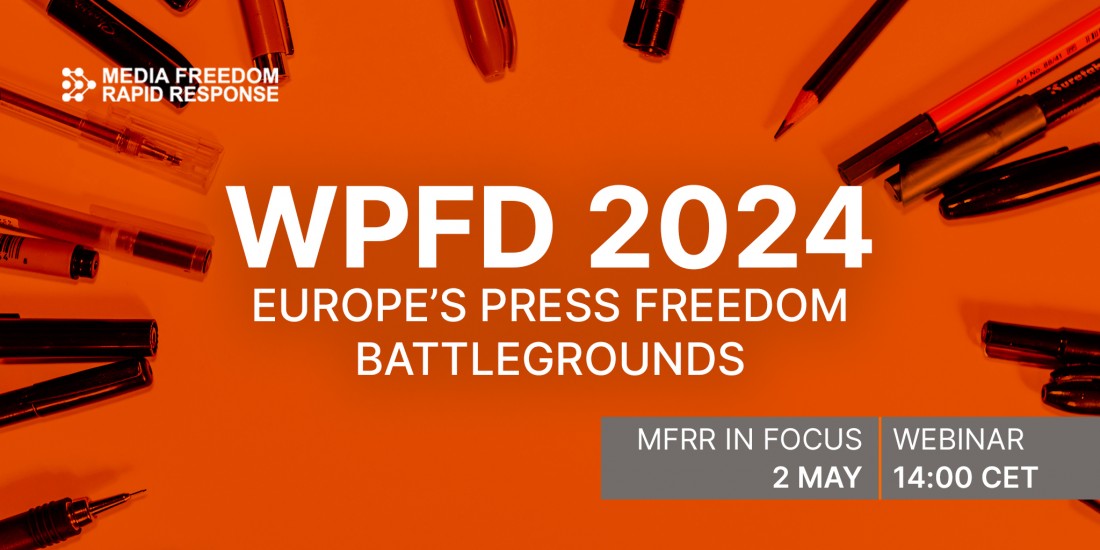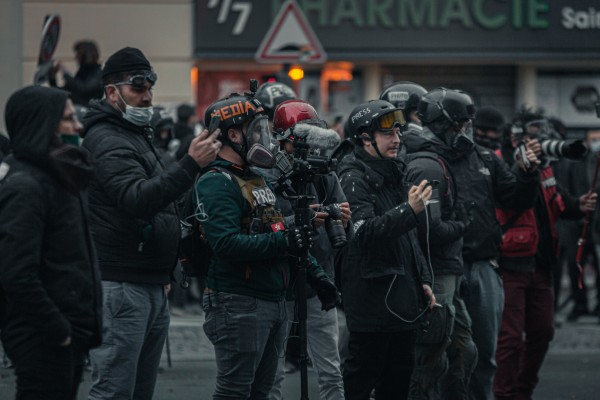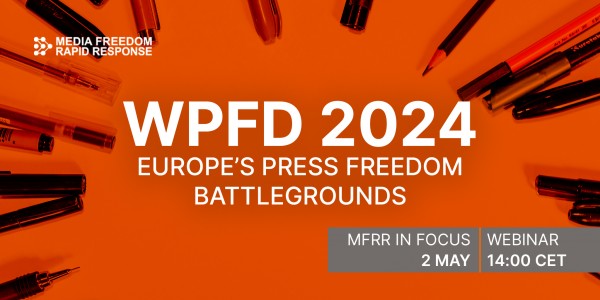Date: Thursday May 2, 2024
Time: 14.00 CET
Location: Register Here
The International Press Institute (IPI) and the Media Freedom Rapid Response (MFRR) invite you to join our World Press Freedom Day 2024 webinar: Europe’s press freedom battlegrounds.
Leading editors from Poland, Slovakia, Italy and Germany will highlight and debate key challenges they face as Europe gears up for a crucial election season.
We’ll look at rising threats, what’s behind them, and the support independent media need to counter them. Plus, we’ll debate what the EU elections mean for media freedom.
Speakers:
- Beata Balogová, editor-in-chief of SME, a major independent daily and news site in Slovakia
- Bartosz Wieliński, deputy editor-in-chief, Gazeta Wyborcza, a major independent daily and news site in Poland
- Stefano Vergine, freelance investigative journalist and contributor, Domani, Italy; Vergine is currently facing charges for handling confidential documents while investigating links between the Minister of Defence and the arms industry in Italy
- Steffen Grimberg, Senior Editor at KNA Mediendienst, the media section of Katholische Nachrichtenagentur
- Ramona Strugariu, MEP and lead negotiator on the European Media Freedom Act for the European Parliament’s Committee on Civil Liberties, Justice and Home Affairs
- Moderator: Scott Griffen: Deputy Director, International Press Institute
Background:
Amid a packed election year in Europe, press freedom is coming under pressure – including in countries with traditionally healthier media environments.
In Slovakia, Robert Fico’s government has lost no time in hounding the independent media, charging it with bias, announcing boycotts, and threatening to withdraw advertising funds. Most critically, the Fico government is fast-tracking a new law that would enable the government to convert Slovak’s public broadcaster into a government propaganda megaphone.
In Italy, Giorgia Meloni’s government has also targeted the Italian public broadcaster Rai, overseeing the early departure of the director and the replacement of numerous senior positions with political appointees. The next few months could be decisive as new members are appointed to RAI supervisory board in May, and media owner and Lega MP Antonio Angelucci attempts to purchase the country’s second-largest news agency, AGI, threatening media pluralism.
Poland’s Civic Platform-led government, headed by Donald Tusk, has ended the propaganda of the public broadcaster, TVP. But it faces huge challenges to roll back political capture of institutions and complete reforms that can secure TVP’s political independence and protect media pluralism in Poland moving forward.
Meanwhile, journalists in Germany, long considered one of the healthiest media environments in Europe, are anxiously looking at the rise of political extremism and threats to journalists. This fall, voters in the eastern German states of Brandenburg, Saxony, and Thuringia will go to the polls, where the far-right Alternative for Germany is expected to make major gains.
Lastly, in recent years EU institutions have been vocal in championing media freedom and fighting disinformation. We will be asking what it has achieved and how initiatives such as the European Media Freedom Act and the Anti-SLAPP directive can protect Europe’s journalism.
This webinar is part of the Media Freedom Rapid Response (MFRR), a Europe-wide mechanism which tracks, monitors and responds to violations of press and media freedom in EU Member States, Candidate Countries, and Ukraine. The project is co-funded by the European Commission.




